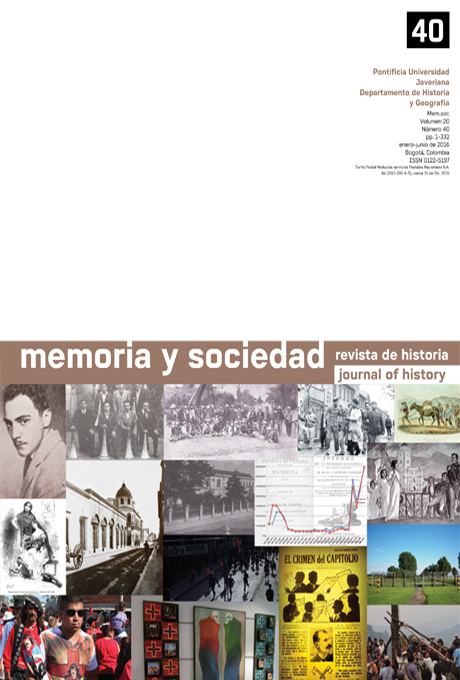Abstract
In October, 1914, the liberal politician Rafael
Uribe Uribe was murdered in Bogota. A
year later, the Di Domenico brothers, pioneers
of Colombian cinema, filmed the movie The
Drama of 15 October, a work that recreated the
most important events of the bloody crime,
featuring Leovigildo Galarza and Jesús Carvajal,
murderers of the leader. For a silent-period
Colombian cinema, this film means one
of the most important and risky moves of its
cinematographic historic, taking into account
the situations borne by the exhibition of the
film, such as boycotting, criticism, and censorship,
which finally brought unfortunate consequences
for its preservation as a work with
audiovisual heritage value. The purpose of this
article is to make known the details of a work,
politically incorrect at the moment of its making,
highlighting through different sources
how our cinema history is strongly framed
by documentary narrations mixing reality and
fiction in the social events of a public figure in
the national context.
The journal Memoria y Sociedad is registered under a Creative Commons Attribution 4.0 International Public License. Thus, this work may be reproduced, distributed, and publicly shared in digital format, as long as the names of the authors and Pontificia Universidad Javeriana are acknowledged. Others are allowed to quote, adapt, transform, auto-archive, republish, and create based on this material, for any purpose (even commercial ones), provided the authorship is duly acknowledged, a link to the original work is provided, and it is specified if changes have been made. Pontificia Universidad Javeriana does not hold the rights of published works and the authors are solely responsible for the contents of their works; they keep the moral, intellectual, privacy, and publicity rights.
Approving the intervention of the work (review, copy-editing, translation, layout) and the following outreach, are granted through an use license and not through an assignment of rights. This means the journal and Pontificia Universidad Javeriana cannot be held responsible for any ethical malpractice by the authors. As a consequence of the protection granted by the use license, the journal is not required to publish recantations or modify information already published, unless the errata stems from the editorial management process. Publishing contents in this journal does not generate royalties for contributors.

